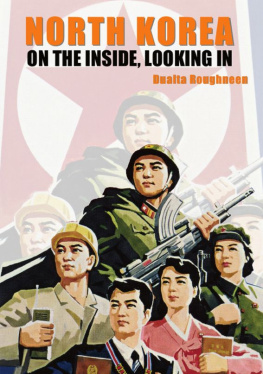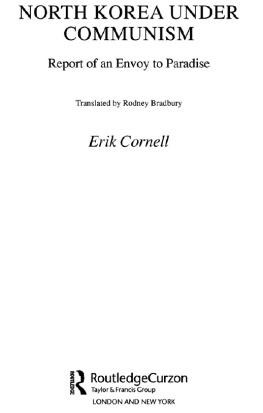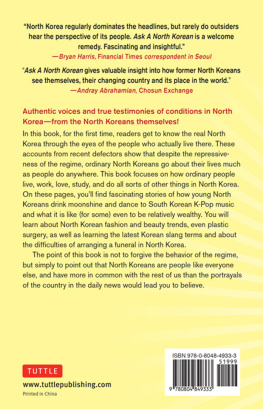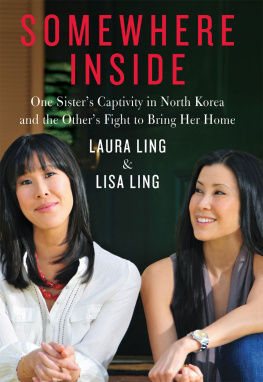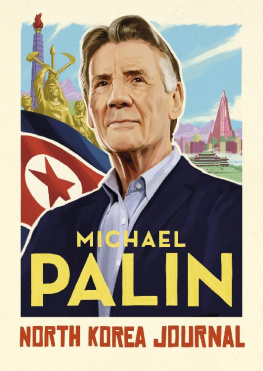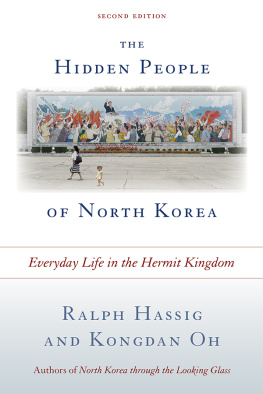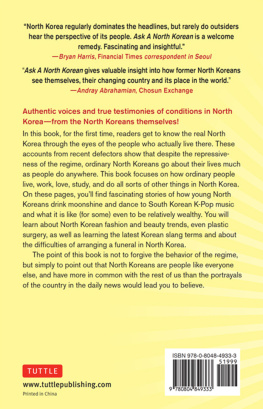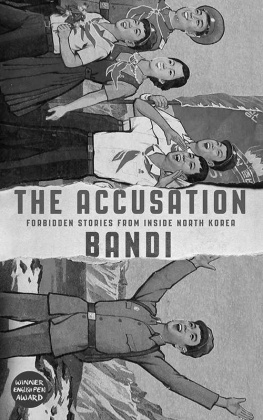North Korea: On the Inside, Looking In
by DualtaRoughneen
[ Smashwords E dition]

* * * * *
Published in 201 4 byBennion Kearny Limited.
Copyright Bennion Kearny Ltd 2014
Dualta Roughneen hasasserted his right under the Copyright, Designs and Patents Act,1988 to be identified as the author of this book.
ISBN: 978-1-909125-66-7
All Rights Reserved. No part of thispublication may be reproduced, stored in a retrieval system, ortransmitted in any form or by any means, electronic, mechanical,photocopying, recording or otherwise, without the prior permissionof the publisher.
This book is sold subject to the conditionthat it shall not, by way of trade or otherwise, be lent, re-sold,hired out or otherwise circulated without the publishers priorconsent in any form of binding or cover other than that it which itis published and without a similar condition including thiscondition being imposed on the subsequent purchaser.
Bennion Kearny has endeavoured to providetrademark information about all the companies and productsmentioned in this book by the appropriate use of capitals. However,Bennion Kearny cannot guarantee the accuracy of thisinformation.
Published by Bennion Kearny Limited , 6 Woodside, Churnet View Road, Oakamoor,Staffordshire, ST10 3AE
www.BennionKearny.com
* * * * *
Table ofContents
* * * * *
Acknowledgements
Credit is due to Kongdan Oh andRalph C Hassig, authors of North Korea Through the LookingGlass, and Marcus Noland, author of Avoiding the Apocalypse:The Future of the Two Koreas. The insights in those two booksform the basis of background information to a number of thesechapters. Also, Robert Willoughby deserves credit for his researchinto the North Korea Bradt Travel Guide, which helped mefind my way around.
* * * * *
About theAuthor
Dualta Roughneen is a CharteredCivil Engineer who has spent 10 years working in humanitariancontexts across the globe. He has worked in Ethiopia, Afghanistan,North Korea, Sudan, Liberia, Cameroon, Niger, and most recently inthe Philippines, in conflict, post-conflict, and man-made ornatural disasters. With a MSc in Human Rights from UniversityCollege Dublin, Dualta has been published previously by CSP (2010)The Right to Roam: Travellers and Human Rights in the ModernNation State.
* * * * *
Introduction
The proletarians have nothingto lose but their chains.
They have a world to win.
The Manifesto of the CommunistParty
It was the era of the CelticTiger in Ireland and Irish people were no longer travelling only tothe United Kingdom and the United States to emigrate. Tiger travelwas very much a rite of passage. Students were getting J-1 visas tothe US to party for the three months of their first universitysummer; others were taking a year out and heading to Australia todo fruit picking and bar work, and go surfing; holidays in Asiawere increasingly popular, with the beaches of Thailand the mainattraction. North Korea, however, was not a place that everfeatured in anyones travel plans. The Far East was never really onmy radar either, until one summer, just after I had returned toIreland from a tough but very exciting year in Afghanistan. It was2004. I was at a loose end, and keen to spread my wings in anotherdirection. Sierra Leone and the Democratic Republic of the Congowere possibilities, until the offer of a job in North Korea camealong.
To start off, you should beaware of my circumstances. I am a civil engineer by trade unfortunate in certain respects, I used to think. However, thisshort career, with the limited technical expertise gained workingas an engineer on roads and landfills in Ireland, with aconstruction company for nine months, and for local government on alandfill for a similar length of time, has afforded meopportunities to travel to some odd little corners of the world.Both jobs ended to enable me to go travelling. Whether thetravelling is a product of my desire to be an aid worker, or my jobas an aid worker is a front to my desire to travel, I am not sure.I would like to think that the good in me is driving the selfish,but who can tell? Either way, I get to see some weird and wonderfulplaces for nice lengths of time, and get paid for it.
This isnt the heart-rendingtale that you might expect from an aid workers diary. It isnt astory about hungry children in dustbowl Darfur, or tears andsuffering in Tibet, or one of putting smiles on hungry faces. Thisis much less than that, much more mundane. But once in a while, Iam in the privileged position of being able to peer into the homeof a North Korean rural dweller. I get to see the simple delightone little tap and one metre of galvanised-iron pipe can make tothe life of a little old woman who has been getting water from theriver for the last twenty years since the big pump-house down theriver breathed its last breath. No life saved, but a very simple,yet important, difference in the womans life. No more washingclothes in the ice-cold river in winter, no more carrying bucketsfrom the stream for drinking and for cooking. Hopefully no moresick children; a clean, warm house and a back that doesnt ache asmuch when the cock crows. Thats the theory. The limited access wehave as foreigners to follow up and monitor projects means that wecant be sure.
Like most people, I knew verylittle about North Korea before I went, except the few excerpts andsnippets that made it into the Irish news. I knew it was somewherevery different, a reclusive state with some variant of communism. Ibegan to read a bit more, and then there was no option but to grabmy golden ticket and board the plane. There were personalconsiderations committing to a year alone in a strange new worldwasnt easy but the DPRK had grabbed my attention. The last bastionof Communism in the StalinistLeninist mould, it may not be aroundmuch longer. I knew that it was a strange sort of privilege to getpaid to visit the place. Few ever get to go there.
I managed to squeeze more thanthe year out of my contract, and ended up in the place for morethan two. There was something addictive about the country, aboutthe people and about the way of life. It is a strange bubble forexpatriates to live in. I met people who had been there much longerthan I had been and a few acquaintances remain.
What is strange and exoticabout the country gradually becomes ultra-routine. The country isoddly banal; the circle of people an expat can mix with socially isincredibly small, and over time the lifestyle kills softly. Livingin a closed community, with limited travel, the feeling of notbeing sure if you are being watched and monitored, doing prettymuch the same things day in, day out, creates a bubble that shieldsyou from the harsh realities of life in the country. You never getto really know an average Korean, or really understand their life,however long you stay. You never get to see the worst aspects oflife there. Expatriate life in developing countries, in particularworking with the UN and NGOs, tends to be a life bubble-wrapped. InNorth Korea, however, it is not the NGOs that provide the wrapping,but the Korean government.
When I knew I was going toKorea, and had learned that Internet and email were almostimpossible at the time, telephone calls ridiculously expensive, andinternational post extremely slow, I decided to keep an electronicdiary of my time there, in an effort to stay in touch with people.I had never even heard of a blog, though the authorities would nothave welcomed such a thing if I had attempted it. In the end, thee-diary lasted only a few emails, as I realised that people werenot going to keep reading it. However, maintaining a record of mytime became a bit of a mania with me. For about the first sixmonths, I kept an intense record of my stay before graduallyweaning myself off long before I left the country.

